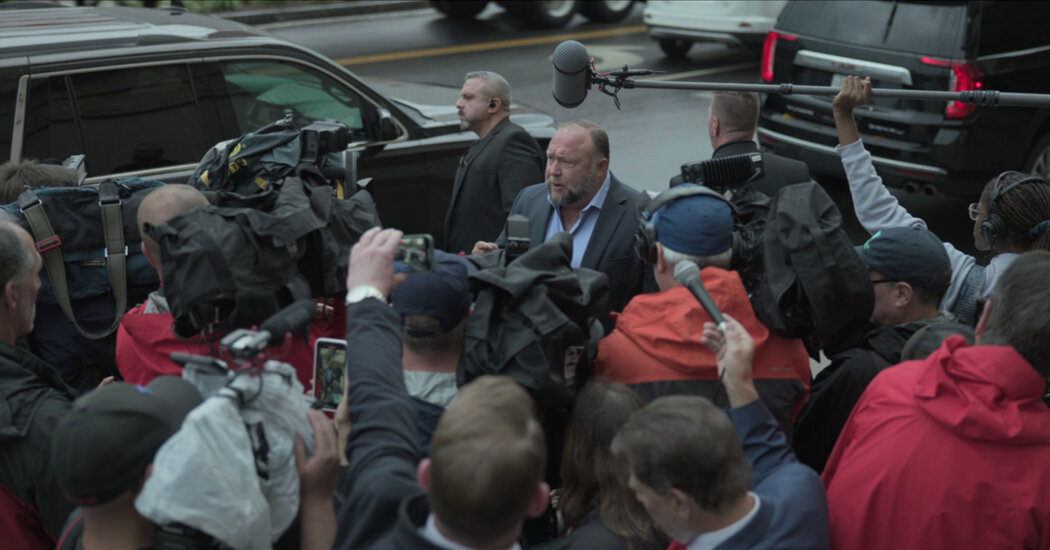Even though the legal battle between Sandy Hook families and the conspiracy theorist Alex Jones has been thoroughly covered, it is still hard to watch him in the documentary “The Truth vs. Alex Jones” without experiencing a wave of nausea.
Directed by Dan Reed (“Leaving Neverland”), the film methodically lays out the horrors that families in Newton, Conn., faced on Dec. 14, 2012, when a gunman killed 20 first graders and six adults at Sandy Hook Elementary. Parents of the victims share memories from that morning before their children left for school. Daniel Jewiss, the lead investigator, walks viewers through how the slaughter unfolded.
Then the documentary shows how, just as the parents were dealing with unfathomable grief, Jones, through his Infowars broadcasts, began promoting the idea that the shooting was a hoax. As he continued to spread falsehoods, people who latched on to such claims harassed the families. Robbie Parker, whose daughter Emilie was killed at Sandy Hook, describes the harassment as coming in waves. “It was almost like I knew when Alex Jones said something,” he says in testimony excerpted in the film.
If there is value in seeing these events recapped, it is in the power of seeing the parents confront Jones in court. (Over two trials, in Texas and Connecticut, they won more than $1 billion in damages.) It is also in the horror of seeing just how confidently Jones deflects questions and tries to steer proceedings to his advantage — denying the families what Alissa Parker, Emilie’s mother, calls “a moment of reflection” from him.
“The Truth vs. Alex Jones” offers a lesson in just how vicious and pervasive conspiracy theories can become and a chilling portrait of how little they may trouble their purveyors.
The Truth vs. Alex Jones
Not rated. Running time: 2 hours 1 minute. Watch on Max.


